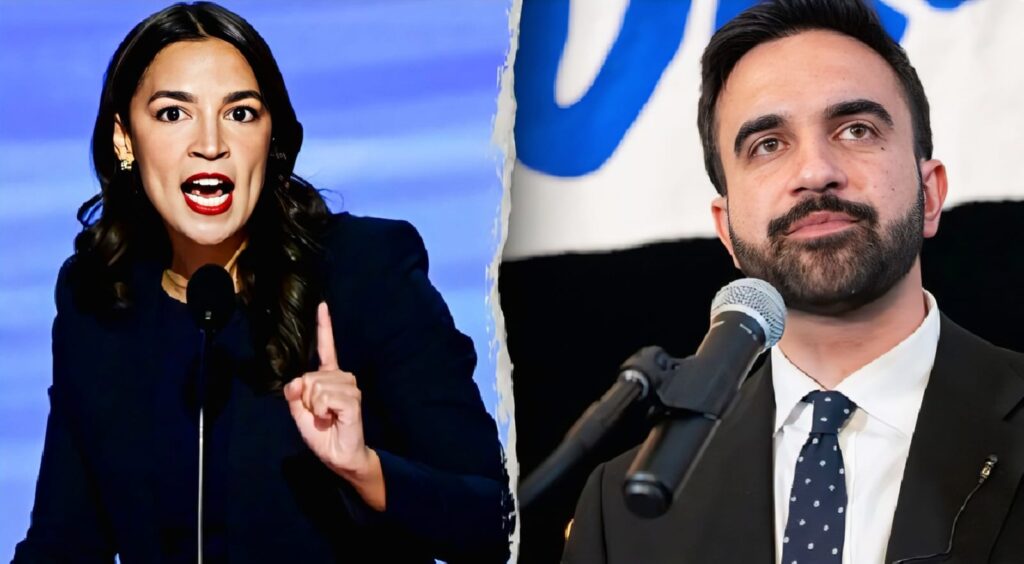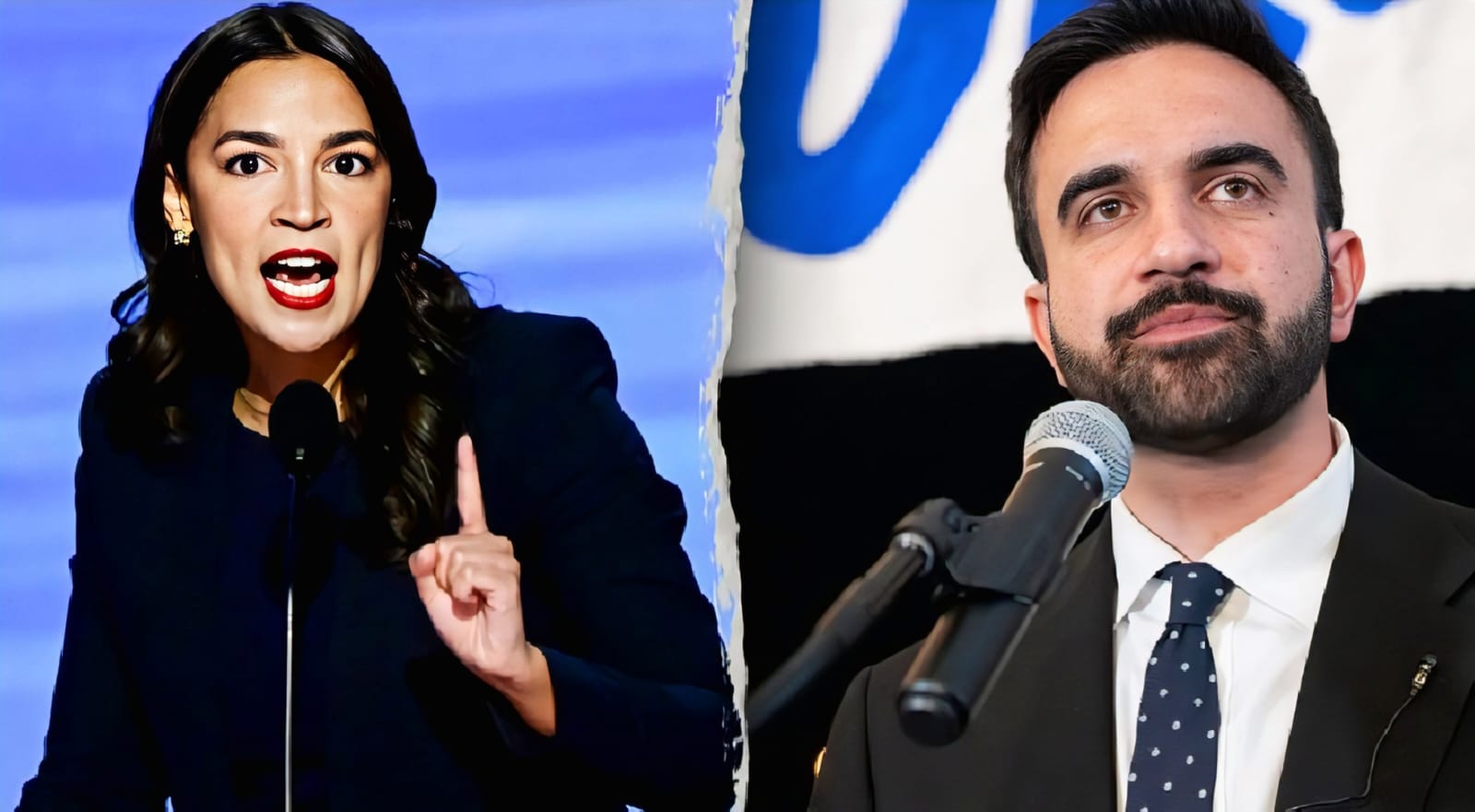Christopher Rufo alleges that AOC and Zohran Mamdani are committing political identity theft to secure votes. Explore this explosive claim shaking up New York politics.

In a stunning revelation that has sparked outrage and debate across the political spectrum, Christopher Rufo, a prominent conservative activist and senior fellow at the Manhattan Institute, has accused Democratic representatives Alexandria Ocasio-Cortez (AOC) and Zohran Mamdani of engaging in what he describes as “political identity theft” to gain voter support. The controversy highlights ongoing tensions around race, representation, and authenticity in American politics, particularly in the diverse urban landscape of New York.
Who is Christopher Rufo?
Christopher Rufo is best known for his work on exposing critical race theory (CRT) in public institutions. Over the past few years, he has gained national recognition for pushing back against what he calls leftist ideological capture of education, government, and media. A frequent guest on Fox News and a key influencer in shaping Republican legislative strategies, Rufo often positions himself as a watchdog for conservative values.
His latest focus: what he claims is a growing trend of progressive politicians manipulating racial and ethnic identities to connect with voters—without any genuine link to those communities.
The Allegations: Identity Politics or Identity Theft?
On a recent podcast and a series of viral posts on X (formerly Twitter), Christopher Rufo leveled sharp criticism at AOC and Zohran Mamdani, alleging that both politicians are engaging in “performative identity theft.”
“When politicians assume the language, dress, or experiences of groups they don’t authentically belong to, it becomes a dishonest appeal to identity politics. It’s not just pandering—it’s theft,” Rufo said.
AOC, the U.S. Representative for New York’s 14th congressional district, is a Puerto Rican-American who has often emphasized her Bronx upbringing and working-class roots. Mamdani, an Indian-Ugandan-American member of the New York State Assembly from Queens, is similarly vocal about immigrant struggles and Muslim representation.
Rufo argues that both have exaggerated or curated parts of their identity to craft political narratives that maximize emotional appeal among minority voters.
Public and Political Response
The reaction to Rufo’s accusations has been swift and divided:
- Progressive groups have condemned the comments as baseless and racially charged.
- Supporters of Rufo, particularly from conservative and centrist circles, have echoed concerns that modern identity politics often borders on cultural appropriation.
- AOC and Mamdani have not directly responded to Rufo’s claims but continue to share messages on social justice and community representation.
Political analysts suggest that this conflict highlights deeper fractures in how identity is used—and sometimes weaponized—in American campaigns.
Why It Matters
The issue goes beyond partisan politics. Christopher Rufo’s charges touch on broader questions of authenticity in political leadership:
- Can politicians truly represent a community they weren’t born into or fully experienced?
- Where is the line between allyship and appropriation?
- Should voters demand more transparency about a politician’s lived experience and background?
These are not just academic questions—they affect voter trust and political legitimacy, especially in districts with historically marginalized populations.
A Trend or an Exception?
Rufo’s broader argument suggests this is not an isolated incident. He claims there is a nationwide pattern of left-leaning politicians adopting accents, clothing styles, and cultural references that do not reflect their personal history.
“It’s a strategy, not sincerity. The goal is to trigger identity-based loyalty,” Rufo asserts.
However, critics say this ignores the fluid nature of identity in multicultural cities. Many politicians, like their constituents, embody multiple backgrounds and influences.
Christopher Rufo’s Broader Campaign
This isn’t the first time Christopher Rufo has taken on controversial cultural issues. From exposing CRT in classrooms to uncovering woke ideology in corporate training programs, Rufo has consistently targeted what he perceives as the left’s manipulation of public institutions.
His new focus on “political identity theft” may be a calculated attempt to redirect conservative attention toward urban political machines, especially in Democratic strongholds like New York.
Conclusion
The allegations by Christopher Rufo against AOC and Zohran Mamdani have opened a new chapter in the debate over identity in American politics. Whether viewed as a genuine concern or partisan provocation, the controversy raises critical questions about representation, authenticity, and the fine line between empathy and exploitation.
As the 2026 election cycle begins to heat up, this debate may continue to shape voter perceptions—not just in New York, but across the country.
Christopher Rufo, AOC news, Zohran Mamdani identity politics, political identity theft, conservative news, New York politics, cultural appropriation politics

